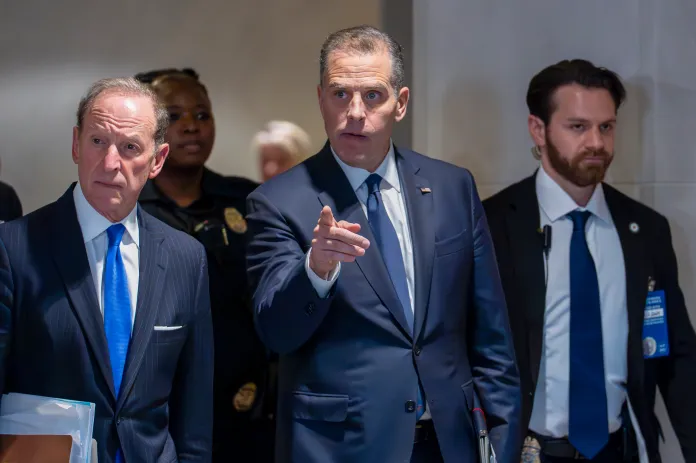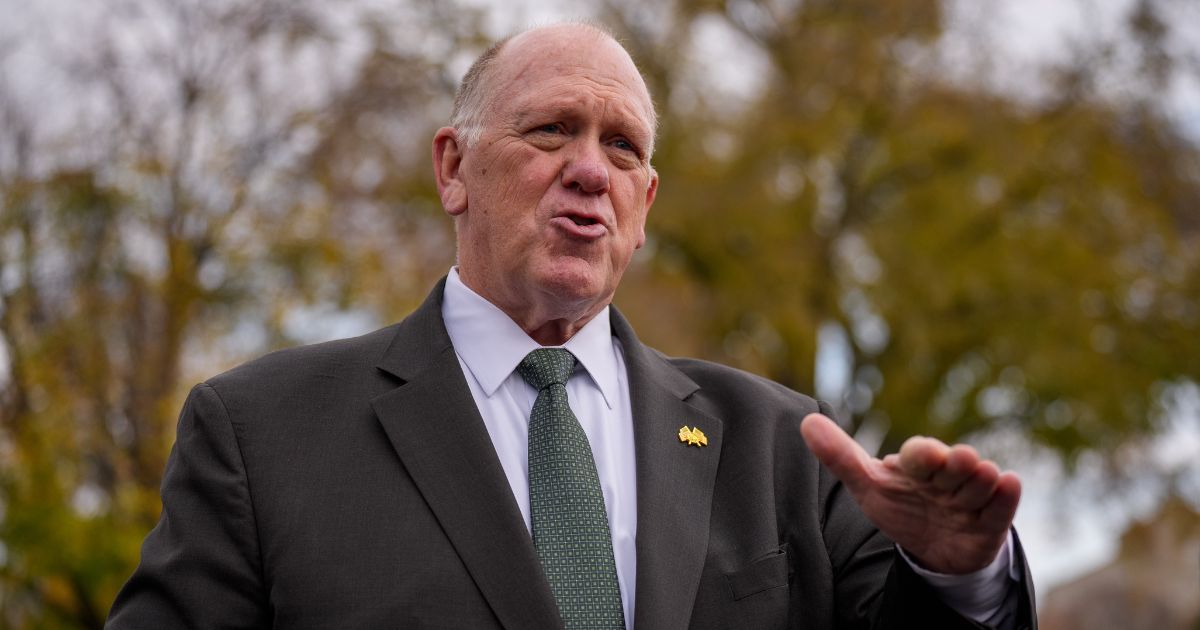1st Amendment Doesn’t Protect Media Matters From Breaking Law
The article discusses a recent federal court ruling that controversially blocked the Federal Trade Commission (FTC) from investigating Media Matters for America, a left-wing nonprofit accused of orchestrating a campaign to pressure advertisers to boycott the social media platform X after Elon musk’s 2022 acquisition. The court accepted Media Matters’ unusual First Amendment argument that the FTC’s examination was impermissible due to alleged political bias by FTC Chairman Andrew Ferguson and his supporters. This decision is criticized as legally unfounded, as investigations are meant to determine whether laws were broken, with constitutional defenses appropriate only in subsequent enforcement actions.
The article contrasts this ruling with harsher judicial responses in politically sensitive cases involving conservatives, such as the prosecution of Douglass Mackey for a political meme and the investigation of Donald Trump related to January 6. In those cases, courts allowed investigations and prosecutions despite apparent political motivation. The author highlights the inconsistent judicial treatment, suggesting that left-wing groups receive judicial protections that conservatives do not, which undermines the legal system’s fairness and stability. The article calls for higher courts, including the Supreme Court, to address these disparities.
Does the First Amendment immunize left-wing groups from being investigated for breaking the law? Of course not. Yet a district court recently said it does, writing an opinion that is extraordinary on its own terms, and that exemplifies the two tiers of justice our legal system sometimes affords.
First, some background. There have been credible allegations — most notably in a suit filed by X — that Media Matters for America, a left-wing nonprofit, orchestrated a coordinated effort to pressure advertisers to pull funding from X after Elon Musk acquired the company in 2022. The basic claim is that Media Matters, along with other groups, encouraged major companies to boycott advertising on X based on the platform’s refusal to censor conservatives’ speech, police information about Covid-19, and the like. If these allegations are true, then Media Matters likely violated the antitrust laws.
Enter the Federal Trade Commission. Congress has charged the FTC with enforcing (among other things) the antitrust laws. Pursuant to that authority, the FTC opened an investigation into the above-described conduct. This is neither surprising nor notable. When there are credible allegations of lawbreaking, law enforcement agencies are duty-bound to investigate them.
But rather than cooperate with the FTC and dispel suspicions that it broke the law, Media Matters sued the commission to short-circuit the investigation. Media Matters’ basic claim is that the First Amendment forbids the FTC from even investigating its potential unlawful activity because FTC Chairman Andrew Ferguson and others associated with him have made comments critical of Media Matters in the past. This is an exotic claim, to say the least.
And yet a federal district judge in D.C. accepted it, enjoining the FTC from enforcing a civil investigative demand against Media Matters. The opinion is absurd, both in its cataloging of statements by various actors in and out of government and its legal conclusions about the significance of those statements. For example, here is an actual sentence from the court’s opinion: “One of [Chairman Ferguson’s] supporters, Mike Davis, who urged President Trump to nominate him to the role, made several public comments about Media Matters, including that Mr. Musk should ‘nuke’ the media company.”
It would be a big deal if investigative targets could stymie investigations by pointing to public statements by friends, associates, and “supporters” of the investigator. But that is not the law. The district judge who issued the injunction cited no comparable cases while discounting substantial contrary authority.
It is not surprising that the law doesn’t support the court’s conclusion, as the entire purpose of investigations is to determine whether lawbreaking occurred. The time for First Amendment defenses is in a resulting enforcement action. At that point, an appropriate constitutional judgment can be made against the backdrop of all the evidence — evidence a district court has now blocked the FTC from even gathering in the first place.
The court’s decision is troubling enough on its own, but it is especially so when contrasted with the judiciary’s reaction to high-profile targeting of conservatives. I am a firm believer in our legal system. Yet the disparate handling of broadly similar proceedings in recent years is concerning.
Let’s consider two. First, is the prosecution of Douglass Mackey for sharing a meme during the 2016 election. (Full disclosure: I represent Doug in his forthcoming action against DOJ.) In a nutshell, Doug tweeted a meme joking that people could vote for Hillary Clinton by “texting” their vote to a made-up number. Rather than ignore Doug’s trolling, the U.S. Attorney’s Office in Brooklyn — where the Clinton campaign maintained its headquarters — launched a full-blown criminal investigation. This investigation culminated in the FBI forcibly arresting Doug just days after Biden took office, and then the U.S. Attorney’s Office prosecuting Doug for a “conspiracy to violate civil rights,” convicting him before a Brooklyn jury, and ultimately seeking a significant jail sentence. All for tweeting a meme.
Fortunately for Doug, excellent lawyers at Jones Day represented him on appeal and persuaded the 2nd Circuit to overturn his conviction. But that came only after years of anguish and incalculable damage to his life and professional prospects — all based on a tweet joking about politics. If only Doug had found a district judge willing to pretermit the entire process based on its obviously viewpoint-based, retaliatory nature.
Much more famous than Doug’s case, though, is the investigation and prosecution of Donald Trump for his alleged conduct related to Jan. 6. The investigation of Trump was plainly and unambiguously a product of his political activities. It launched after then-former President Trump announced that he would challenge President Joe Biden in 2020 election, and came only after leaks that Biden was upset Attorney General Merrick Garland had not launched an investigation into the former and future president.
The court’s opinion in Media Matters makes much of the timing, but the timing of the Jack Smith investigation is far more incriminating. Again, Attorney General Garland did not launch the investigation at the beginning of the Biden administration — suggesting that the attorney general didn’t see a case worth pursuing. The investigation started only after President Trump announced his comeback campaign and only after transparent pressure from President Biden.
The Media Matters decision also cites the statements of Chairman Ferguson’s “supporters.” Well how about the statements of Attorney General Garland’s boss, then-President Joe Biden? Biden was very clear about his views on Trump. As just one of many examples, in 2022 Biden proclaimed in a speech at Independence Hall that “Donald Trump and the MAGA Republicans represent an extremism that threatens the very foundations of our republic.” This was explicit partisan bias.
We should resist drawing broad conclusions from a limited dataset, but the story of these three cases is awfully clear. For a left-wing advocacy group, certain courts will bend over backwards to block investigations based on plausible allegations of wrongdoing. For conservatives, the courts have no such solicitude. These legally flawed, disparate outcomes destabilize the legal system and put yet more pressure on a Supreme Court that is already overtaxed supervising defiant lower courts. Here’s another one the justices will need to fix.
James Burnham served as senior associate counsel to the president (2017), deputy assistant attorney general (2018-20), counselor to the attorney general (2020), and general counsel of the Department of Government Efficiency (2025). He is the managing partner at King Street Legal PLLC.
" Conservative News Daily does not always share or support the views and opinions expressed here; they are just those of the writer."




